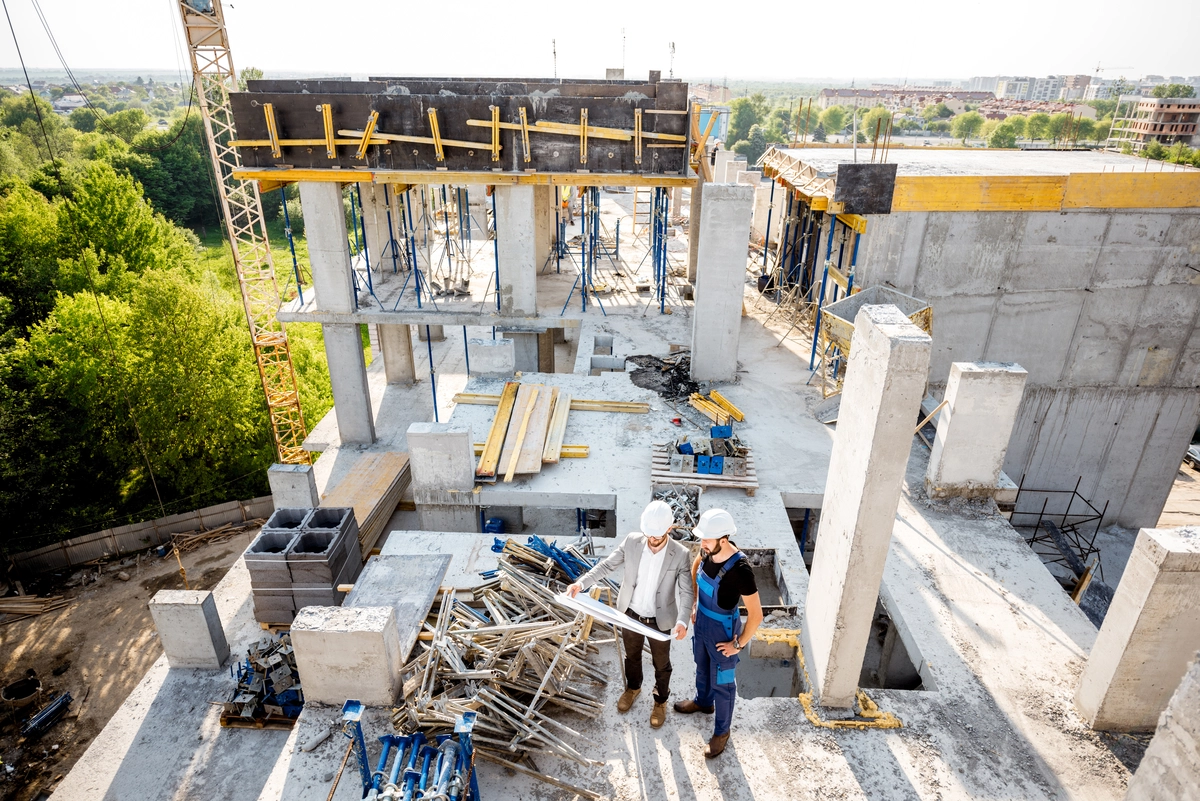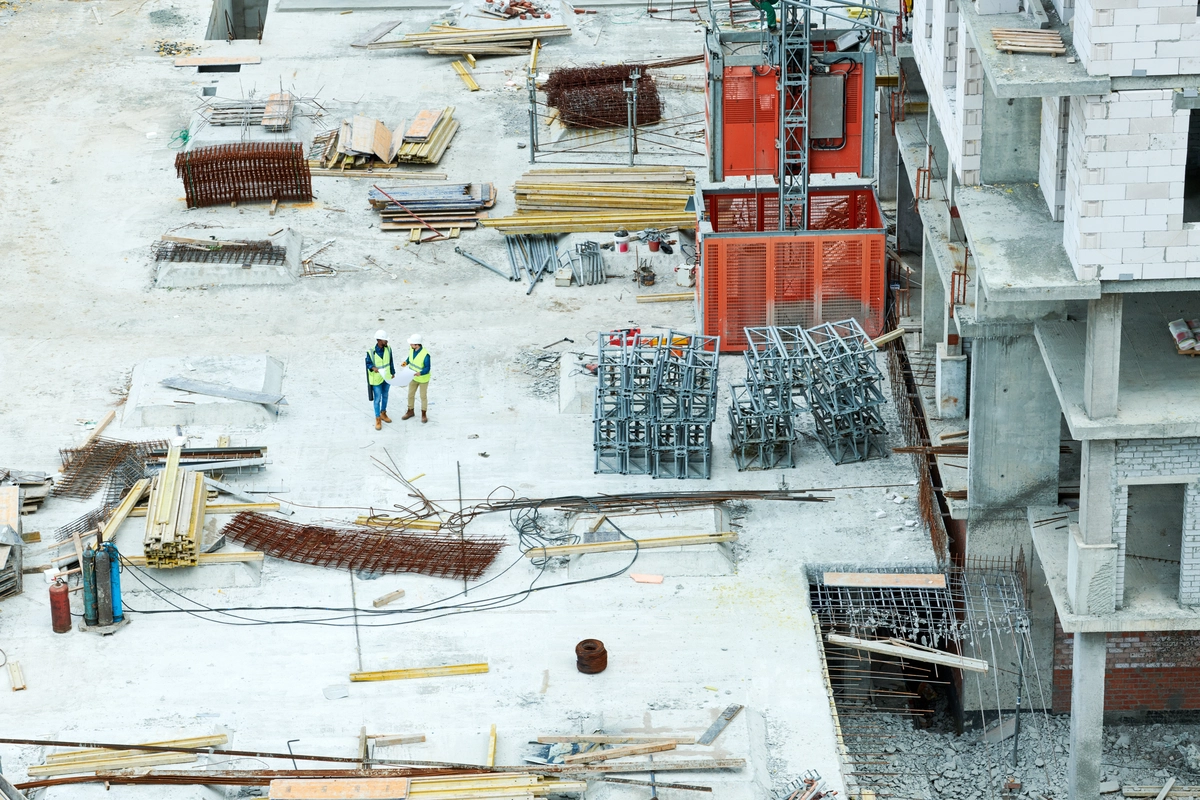How Is AI Transforming the Construction Industry?
One of the most exciting aspects of AI in construction is its ability to optimize project planning and management. Imagine a virtual assistant that can analyze complex data from previous projects, weather conditions, supplier schedules, and even local regulations to create accurate project timelines. This not only reduces delays but also improves resource allocation, saving both time and money.
AI-powered drones are another game-changer in construction. These high-tech aerial marvels can survey construction sites with precision, collecting real-time data and generating 3D maps. This helps project managers monitor progress, identify potential issues early on, and ensure that everything is on track – all without having to step foot on the site.
When it comes to safety, AI is proving to be a reliable ally. Smart wearables equipped with AI can monitor workers’ health vitals and detect signs of fatigue or potential accidents. This proactive approach not only enhances safety protocols but also boosts productivity by ensuring that workers are in optimal condition to perform their tasks.
Moreover, AI is pushing the boundaries of design creativity. Advanced algorithms can analyze architectural designs and optimize them for energy efficiency, cost-effectiveness, and even aesthetic appeal. This means that architects and engineers can explore innovative designs with the confidence that AI will provide insights to refine and improve their ideas.
Building the Future: AI’s Role in Revolutionizing Construction Techniques
In today’s construction industry, AI is making waves by optimizing various stages of the building process. One of the most significant impacts is in design and planning. Traditionally, architects and engineers would spend countless hours creating blueprints and models. Now, AI algorithms can analyze vast amounts of data to generate optimized designs based on factors like environmental impact, structural integrity, and cost-efficiency. This not only speeds up the initial phases but also enhances the quality and sustainability of the final product.
Once the design is finalized, AI continues to play a crucial role during construction. On-site AI-powered machinery can perform tasks that traditionally required human labor, such as bricklaying, welding, and even operating cranes. These machines work tirelessly around the clock, with precision that surpasses human capabilities, leading to faster completion times and reduced labor costs.
Moreover, AI’s predictive capabilities are transforming how construction projects are managed. By analyzing data from sensors and historical project information, AI can anticipate potential delays, optimize supply chain logistics, and even mitigate safety risks. This foresight allows project managers to make informed decisions in real-time, keeping projects on track and within budget.
In essence, AI isn’t just a tool in construction – it’s a game-changer. It’s redefining what’s possible, pushing boundaries, and opening doors to innovations that were once thought impossible. As we continue to harness its power, the future of construction looks brighter than ever, promising safer, more efficient, and more sustainable buildings for generations to come.
Smart Sites: How AI is Enhancing Efficiency and Safety in Construction
Imagine a construction site where every action, every movement is optimized for maximum efficiency and safety. Thanks to AI, this vision is becoming a reality. AI-powered systems are like vigilant guardians, constantly analyzing data and making split-second decisions to ensure everything runs smoothly.
One of the most remarkable applications of AI in construction is its ability to enhance project management. AI algorithms can process vast amounts of data from various sources such as sensors, drones, and wearable devices worn by workers. By crunching these numbers, AI can predict potential delays, optimize schedules, and even suggest improvements in real-time. This capability not only saves time but also minimizes costs significantly.

Another game-changing aspect of AI in construction is its role in quality control. AI algorithms can inspect materials and structures with unmatched precision. They can detect flaws or deviations from design specifications that might elude the human eye. This level of accuracy minimizes errors and ensures that projects are completed to the highest standards.
Furthermore, AI is streamlining equipment management. Smart sensors embedded in machinery can monitor performance in real-time, predicting maintenance needs and preventing breakdowns. This predictive maintenance approach maximizes uptime and extends the lifespan of expensive equipment.
From Blueprints to Reality: AI’s Impact on Design and Planning in Construction
In the realm of construction, AI acts as a visionary architect, breathing life into raw blueprints. It analyzes vast amounts of data with lightning speed, predicting outcomes and optimizing every aspect of a project. Imagine having a digital assistant that can foresee challenges before they arise, ensuring smoother workflows and minimizing costly errors.
One of AI’s greatest impacts is in conceptualizing designs. It can digest architectural drawings, structural plans, and environmental factors, amalgamating them into optimized blueprints that are both efficient and aesthetically pleasing. This isn’t just about lines on paper anymore; it’s about creating virtual realities that transcend imagination.

Picture this: AI as a digital foreman on a construction site, orchestrating teams and machinery with precision akin to a maestro conducting a symphony. It coordinates schedules, monitors progress, and even suggests adjustments in real-time, ensuring that the blueprint’s vision translates flawlessly into reality.
Furthermore, AI’s influence extends to sustainability. By analyzing environmental data and material efficiencies, it promotes eco-friendly practices in construction. Imagine structures that not only stand tall but also leave a minimal carbon footprint, contributing positively to our planet’s future.
Robotics on the Rise: AI-Powered Machines Changing the Face of Construction
AI-powered robotics bring a level of precision and efficiency that was unimaginable just a few years ago. These machines can analyze vast amounts of data in real-time, making split-second decisions that optimize every aspect of the construction process. From laying bricks to pouring concrete, robots equipped with AI can perform tasks with incredible accuracy, reducing errors and improving overall quality.
One of the most impressive feats of AI in construction is its ability to adapt to unpredictable conditions. These robots can adjust their actions based on environmental factors such as weather changes or material shortages, ensuring that construction projects stay on track and on budget. This adaptability not only increases productivity but also minimizes downtime, allowing projects to progress smoothly even in challenging circumstances.
Moreover, AI-powered machines are enhancing safety on construction sites. By taking on hazardous tasks that would otherwise put human workers at risk, these robots are reducing accidents and injuries. They can operate continuously without fatigue, maintaining high levels of productivity throughout the day and night.
As AI continues to advance, so too will its impact on the construction industry. Experts predict that in the coming years, we will see even more sophisticated robots capable of autonomous decision-making and learning from their experiences. This evolution promises to further streamline construction processes, making them faster, cheaper, and more environmentally friendly.
Predictive Power: How AI Algorithms are Streamlining Project Management
AI algorithms are revolutionizing how projects are planned, executed, and monitored. By analyzing past data and patterns, these algorithms can predict future outcomes with remarkable accuracy. This predictive capability allows project managers to allocate resources more efficiently, optimize schedules, and mitigate risks proactively.
One of the key strengths of AI in project management lies in its ability to process vast amounts of data in real-time. Traditional methods often rely on manual input and analysis, which can be time-consuming and prone to human error. AI, on the other hand, can sift through mountains of data at incredible speed, identifying trends and insights that might have otherwise gone unnoticed.
Imagine a scenario where a project manager receives a notification from their AI assistant alerting them to a potential delay in a critical task. Thanks to predictive algorithms, the AI has detected a bottleneck in the supply chain based on historical data and current market conditions. Armed with this insight, the project manager can take preemptive action to resolve the issue before it impacts the project timeline.
Moreover, AI algorithms excel in adapting to changing circumstances. As new data becomes available, these algorithms can adjust their predictions accordingly, ensuring that project managers always have the most up-to-date information at their fingertips. This agility is invaluable in today’s dynamic business environment where market conditions can shift rapidly.
